I have never ceased to adore Tennyson, though the rapture of the new convert could not last. That must pass like the flush of any other passion. I think I have now a better sense of his comparative greatness, but a better sense of his positive greatness I could not have than I had at the beginning; and I believe this is the essential knowledge of a poet. It is very well to say one is greater than Keats, or not so great as Wordsworth; that one is or is not of the highest order of poets like Shakespeare and Dante and Goethe; but that does not mean anything of value, and I never find my account in it. I know it is not possible for any less than the greatest writer to abide lastingly in one's life. Some dazzling comer may enter and possess it for a day, but he soon wears his welcome out, and presently finds the door, to be answered with a not-at-
home if he knocks again. But it was only this morning that I read one of the new last poems of Tennyson with a return of the emotion which he first woke in me well-nigh forty years ago. There has been no year of those many when I have not read him and loved him with something of the early fire if not all the early conflagration; and each successive poem of his has been for me a fresh joy.
He went with me into the world from my village when I left it to make my first venture away from home. My father had got one of those legislative clerkships which used to fall sometimes to deserving country editors when their party was in power, and we together imagined and carried out a scheme for corresponding with some city newspapers. We were to furnish a daily, letter giving an account of the legislative proceedings which I was mainly to write up from material he helped me to get together. The letters at once found favor with the editors who agreed to take them, and my father then withdrew from the work altogether, after telling them who was doing it. We were afraid they might not care for the reports of a boy of nineteen, but they did not seem to take my age into account, and I did not boast of my youth among the lawmakers. I looked three or four years older than I was; but I experienced a terrible moment once when a fatherly Senator asked me my age. I got away somehow without saying, but it was a great relief to me when my twentieth birthday came that winter, and I could honestly proclaim that I was in my twenty-first year.
I had now the free range of the State Library, and I drew many sorts of books from it. Largely, however, they were fiction, and I read all the novels of Bulwer, for whom I had already a great liking from 'The Caxtons' and 'My Novel.' I was dazzled by them, and I thought him a great writer, if not so great a one as he thought himself. Little or nothing of those romances, with their swelling prefaces about the poet and his function, their glittering criminals, and showy rakes and rogues of all kinds, and their patrician perfume and social splendor, remained with me; they may have been better or worse; I will not attempt to say.
If I may call my fascination with them a passion at all, I must say that it was but a fitful fever. I also read many volumes of Zschokke's admirable tales, which I found in a translation in the Library, and I think I began at the same time to find out De Quincey. These authors I recall out of the many that passed through my mind almost as tracelessly as they passed through my hands. I got at some versions of Icelandic poems, in the metre of "Hiawatha"; I had for a while a notion of studying Icelandic, and I did take out an Icelandic grammar and lexicon, and decided that I would learn the language later. By this time I must have begun German, which I afterwards carried so far, with one author at least, as to find in him a delight only second to that I had in Tennyson;
but as yet Tennyson was all in all to me in poetry. I suspect that I carried his poems about with me a great part of the time; I am afraid that I always had that blue-and-gold Tennyson in my pocket; and I was ready to draw it upon anybody, at the slightest provocation. This is the worst of the ardent lover of literature: he wishes to make every one else share his rapture, will he, nill he. Many good fellows suffered from my admiration of this author or that, and many more pretty, patient maids.
I wanted to read my favorite passages, my favorite poems to them; I am afraid I often did read, when they would rather have been talking; in the case of the poems I did worse, I repeated them. This seems rather incredible now, but it is true enough, and absurd as it is, it at least attests my sincerity. It was long before I cured myself of so pestilent a habit; and I am not yet so perfectly well of it that I could be safely trusted with a fascinating book and a submissive listener. I dare say I could not have been made to understand at this time that Tennyson was not so nearly the first interest of life with other people as he was with me;
I must often have suspected it, but I was helpless against the wish to make them feel him as important to their prosperity and well-being as he was to mine. My head was full of him; his words were always behind my lips; and when I was not repeating his phrase to myself or to some one else, I was trying to frame something of my own as like him as I could.
It was a time of melancholy from ill-health, and of anxiety for the future in which I must make my own place in the world. Work, and hard work, I had always been used to and never afraid of; but work is by no means the whole story. You may get on without much of it, or you may do a great deal, and not get on. I was willing to do as much of it as I could get to do, but I distrusted my health, somewhat, and I had many forebodings, which my adored poet helped me to transfigure to the substance of literature, or enabled me for the time to forget. I was already imitating him in the verse I wrote; he now seemed the only worthy model for one who meant to be as great a poet as I did. None of the authors whom I read at all displaced him in my devotion, and I could not have believed that any other poet would ever be so much to me. In fact, as I have expressed, none ever has been.















